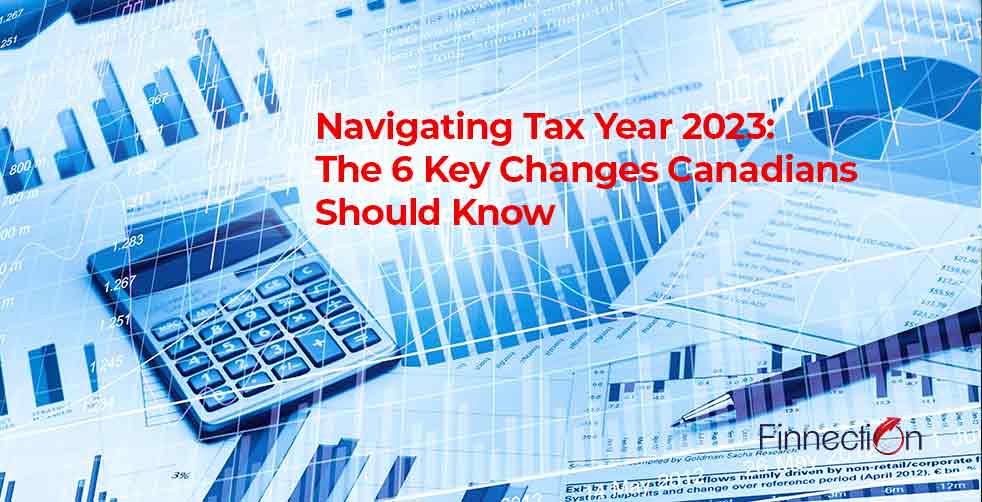As the leaves change hues and the Canadian landscape transforms with the onset of fall, the nation also undergoes a transformation of a different kind: the unveiling of the 2023 Fall Economic Statement. Against a backdrop of global uncertainties and internal challenges, this statement serves as a beacon guiding Canada’s economic trajectory.
Tax laws are constantly evolving, and staying updated is crucial for Canadians to navigate the ever-changing landscape of taxation. As we embark on tax year 2023, several significant changes have been implemented, shaping the way individuals and businesses manage their finances. Here are the six most notable tax changes that Canadians need to be aware of:

- Climate Action Incentives:
To combat climate change, the government has introduced enhanced climate action incentives. This includes increased rebates for eligible energy-efficient home renovations and zero-emission vehicles. Canadians investing in eco-friendly upgrades or purchases may qualify for larger incentives, encouraging a shift towards sustainability while offering financial benefits.
- Digital Services Tax:
A new digital services tax is now in effect, targeting multinational tech giants that provide online services. This tax aims to ensure that these companies contribute fairly to the Canadian economy by taxing revenues generated from certain digital activities. It’s intended to create a more level playing field for domestic businesses and generate additional revenue for the government.
- Changes to Principal Residence Exemption:
Previously, the sale of a primary residence was exempt from capital gains tax. However, starting in tax year 2023, individuals must report the sale of their principal residence to the Canada Revenue Agency (CRA). While the exemption remains for most homeowners, this reporting requirement aims to prevent abuse of the system and ensure compliance with the eligibility criteria for the exemption.
- Expanded Tax-Free Savings Account (TFSA) Contribution Limit:
The TFSA contribution limit has been increased, allowing Canadians to save and invest more tax-free. The new limit, adjusted for inflation, provides individuals with an opportunity to grow their savings sheltered from taxation. Maximizing contributions to TFSAs can significantly benefit long-term financial planning.
- Remote Work Deductions:
With the widespread adoption of remote work, the government has introduced specific deductions for home office expenses. Eligible individuals who worked remotely for a significant portion of the tax year can claim deductions for expenses related to their home office, such as utilities, internet, and office supplies. Detailed documentation and adherence to specific criteria are necessary for these deductions.
- Enhanced Childcare Benefits:
Enhancements have been made to childcare benefits, aiming to alleviate the financial burden on families. Increased support through the Canada Child Benefit (CCB) and additional benefits for childcare expenses aim to assist parents in balancing work and family responsibilities.
It’s imperative for Canadians to familiarize themselves with these changes to optimize their tax planning strategies and ensure compliance with the revised regulations. Seeking advice from tax professionals or utilizing reputable tax software can aid in navigating these changes effectively.
Conclusion:
Tax year 2023 brings forth several significant alterations to Canada’s tax landscape, spanning environmental incentives, digital taxation, homeowner obligations, savings opportunities, remote work deductions, and childcare benefits. Staying informed and adapting financial strategies in alignment with these changes can empower individuals and businesses to make informed decisions and optimize their tax positions in the upcoming year.
If you have any questions regarding Tax Year 2023 in Canada, feel free to contact finnection via email at info@finnection.ca or call us at (647) 795-5462
Disclaimer: Above information is subject to change and represent the views of the author. It is shared for educational purposes only. Readers are advised to use their own judgement and seek specific professional advice before making any decision. Finnection Inc. is not liable for any actions taken by reader based on the information shared in this article. You may consult with us before using this information for any purpose.
